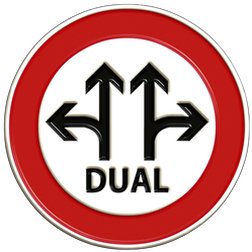What is Dual Diagnosis?
The dual diagnosis is a term for when someone experiences a mental illness and a substance abuse problem simultaneously. Dual diagnosis is a very broad category. It can range from someone developing mild depression because of binge drinking, to someone’s symptoms of bipolar disorder becoming more severe when that person abuses heroin during periods of mania.
Either substance abuse or mental illness can develop first. A person experiencing a mental health condition may turn to drugs and alcohol as a form of self-medication to improve the troubling mental health symptoms they experience. Research shows that drugs and alcohol only make the symptoms of mental health conditions worse.
Abusing substances can also lead to mental health problems because of the effects drugs have on a person’s moods, thoughts, brain chemistry, and behavior.
What are the symptoms of Dual Diagnosis?
Mental health and substance abuse disorders occur simultaneously. Because there are many combinations of disorders that can occur, the symptoms of dual diagnosis vary widely. The symptoms of substance abuse may include:
Withdrawal from friends and family.
Sudden changes in behavior.
Using substances under dangerous conditions.
Engaging in risky behaviors when drunk or high.
Loss of control over the use of substances.
Doing things you wouldn’t normally do to maintain your habit.
Developing tolerance and withdrawal symptoms.
Feeling like you need the drug to be able to function.
How is a dual diagnosis treated?
Detoxification
The physiological or medicinal removal of toxic substances from a living organism, including the human body, which is mainly carried out by the liver. Additionally, it can refer to the period of withdrawal during which an organism returns to homeostasis after long-term use of an addictive substance.
The first major hurdle that people with dual diagnosis will have to pass is detoxification. During inpatient detoxification, a person is monitored 24/7 by trained medical staff for up to 7 days. The staff may administer tapering amounts of the substance or its medical alternative in order to wean a person off and lessen the effects of withdrawal. Inpatient detoxification is generally more effective than outpatient for initial sobriety. This is because inpatient treatment provides a consistent environment and removes the person battling addiction from exposure to people and places associated with using. Mid Cities Psychiatry may refer to the inpatient facility best suited for the patient.
Inpatient Rehabilitation
Each inpatient rehabilitation unit offers a medically supervised, comprehensive program that evaluates, treats and educates people with physical disabilities.
A person experiencing serious mental illness and dangerous or dependent patterns of abuse may benefit most from an inpatient rehabilitation center where she can receive concentrated medical and mental health care 24/7. These treatment centers provide her with therapy, support, medication, and health services with the goal of treating her addiction and its underlying causes. Mid Cities Psychiatry may refer to the inpatient facility best suited for the patient.
Medication
One of the useful tools for treating a variety of mental illnesses is Medication. Depending on the mental health symptoms a person is experiencing, different mental health medications may play an important role in one’s recovery. Certain medications are also helpful for people experiencing substance abuse. These medications are used to help ease withdrawal symptoms or promote recovery. Medications to ease withdrawal are used during the detoxification process. They produce similar effects on the body as certain addictive drugs. Mid Cities Psychiatry may help.
Psychotherapy
Psychotherapy actually involves a variety of treatment techniques. It is almost always a large part of an effective dual diagnosis treatment plan. Education on a person’s illness and how their beliefs and behaviors influence their thoughts has been shown in countless studies to improve the symptoms of both mental illness and substance abuse. Cognitive-behavioral therapy (CBT) in particular is effective in helping people with dual diagnoses learn how to cope and to change ineffective patterns of thinking. Mid Cities Psychiatry believes in Psychotherapy for the patients in need.



